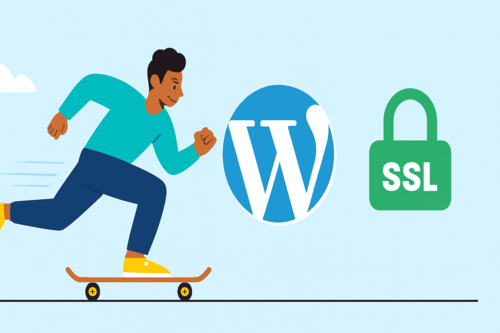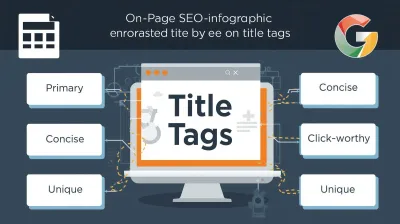Introduction: Your Website's Online Home
Think of your website as your online home or business storefront. Just like a physical building needs land to sit on, your website needs a place to live online so people can visit it anytime. That place is called **web hosting**. Choosing the *right* web hosting from the start is crucial. It significantly impacts your website's speed, reliability (how often it's online), and ultimately, the experience your visitors have. A slow or unreliable website can frustrate visitors and potentially harm your reputation or business. In this guide, we'll explore the most common types of web hosting suitable for beginners. We'll clarify their pros and cons, helping you determine the perfect fit for your very first website, and highlight some excellent, user-friendly options available.
What Exactly is Web Hosting (in Simple Terms)?
Web hosting is essentially a rental service for online space. You store your website's files (text, images, code, etc.) on a powerful, specialized computer called a **server**, which is connected to the internet 24/7. When someone types your website address (domain name) into their browser, the browser connects to your server, which then sends your website's files to be displayed on their screen. You're renting this server space to make your website accessible worldwide.

Common Types of Web Hosting for Beginners
Let's dive into the main options you'll likely encounter as you begin your website journey:
1. Shared Hosting: The Budget-Friendly Starter
* **What it is:** Imagine living in an apartment building. You have your own apartment (your website), but you share the building's core resources like water, electricity, and hallways with other tenants. Shared hosting is similar – your website resides on a server alongside many other websites, sharing resources like processing power (CPU), memory (RAM), and disk space. * **Pros:** Most Affordable, Easy to Manage, Beginner-Friendly. * **Cons:** Shared Resources Impact, Limited Customization, Resource Ceilings. * **Best for:** Brand new websites, personal blogs, small local business sites, online portfolios, sites with expected low-to-moderate traffic. Shared hosting is the most popular starting point due to its simplicity and low cost. Providers often include helpful tools to get you started quickly.
Best Choice for Beginners: Hostinger Web Hosting
Get secure, fast hosting packed with features like free SSL, email accounts, and easy WordPress setup. Perfect for launching your first site without breaking the bank.
See Web Hosting Deals2. VPS Hosting: More Power and Control
* **What it is:** Think of VPS (Virtual Private Server) like owning a condo. You have your own defined space with dedicated resources (a guaranteed amount of CPU, RAM, storage) that aren't directly shared, offering more privacy and consistency, even though you're within a larger shared building (the physical server). The main server is cleverly divided into multiple *virtual* private environments. * **Pros:** Greater Control (root access), Guaranteed Resources, Enhanced Performance & Security. * **Cons:** Higher Cost, Requires Technical Skill (unless managed). * **Best for:** Websites outgrowing shared hosting, small to medium e-commerce stores, developers needing specific software, sites with moderate-to-high traffic. When your website needs more dedicated power and you're comfortable with (or want to learn) more server management, VPS is the logical next step.
Level Up Your Performance: Hostinger VPS
Gain more control and guaranteed resources with high-performance KVM VPS. Ideal for growing websites, applications, and developers needing flexibility.
Explore VPS Plans3. Cloud Hosting: Scalability and Reliability
* **What it is:** Unlike traditional hosting tied to a single server, cloud hosting utilizes a *network* of interconnected servers (the "cloud"). If one server fails or gets overloaded, others in the network step in seamlessly. This structure allows resources (like CPU and RAM) to be scaled up or down easily based on real-time traffic demands. * **Pros:** Excellent Reliability & Uptime, Flexible Scalability, Potentially Better Performance. * **Cons:** Generally More Expensive, Pricing Can Be Complex (depending on provider). * **Best for:** Businesses anticipating rapid growth, high-traffic websites, e-commerce platforms, applications demanding maximum uptime, sites with unpredictable traffic patterns. For websites where uptime is critical and traffic can spike unpredictably, Cloud Hosting offers superior reliability and the ability to scale resources instantly.
Ultimate Reliability & Growth: Hostinger Cloud Hosting
Combine the power of VPS with the simplicity of shared hosting. Get dedicated resources, high uptime, and seamless scalability for demanding websites.
Discover Cloud FeaturesOther Hosting Options Worth Knowing
While the three above are the most common starting points, you might also hear about: * **WordPress Hosting:** Shared, VPS, or cloud hosting specifically configured and optimized for WordPress performance and security. * **Dedicated Server Hosting:** Renting an entire physical server. Powerful but expensive and requires advanced technical skills. * **Agency Hosting:** Specialized plans for managing multiple client websites efficiently. Hostinger offers tailored solutions for agencies. * **Website Builder:** Tools like the Hostinger Website Builder bundle hosting with an easy drag-and-drop interface, perfect for creating sites without technical hassle, often including AI assistance.
How to Choose the Right Hosting for YOU?
Feeling overwhelmed? Don't worry! Ask yourself these questions: 1. **What's my budget?** Shared Hosting is the most budget-friendly start. 2. **What kind of website am I building, and how much traffic do I expect?** Simple blog? Shared is likely fine. Online store? Consider VPS or Cloud sooner. 3. **How comfortable am I with technical tasks?** Prefer ease? Stick with Shared or managed Cloud. Enjoy configuration? VPS offers freedom. 4. **Do I anticipate rapid growth?** Cloud Hosting offers the easiest path for scaling. 5. **How important is customer support?** Especially for beginners, 24/7 support (which Hostinger provides) is invaluable.
Conclusion: Start Smart with Your Hosting Choice
Understanding the core differences between Shared, VPS, and Cloud hosting empowers you to make an informed decision for your first website. For most newcomers, **Shared Hosting provides the ideal blend of affordability and simplicity**. The great thing is, you're not locked in forever; you can always upgrade your plan as your website grows and its needs evolve. Providers like **Hostinger** stand out by offering strong performance and user-friendly features across all these hosting types, making them a solid choice whether you're just starting or ready to scale. Their competitive pricing and helpful support are also major advantages. Ready to take the first step and bring your website idea to life?






